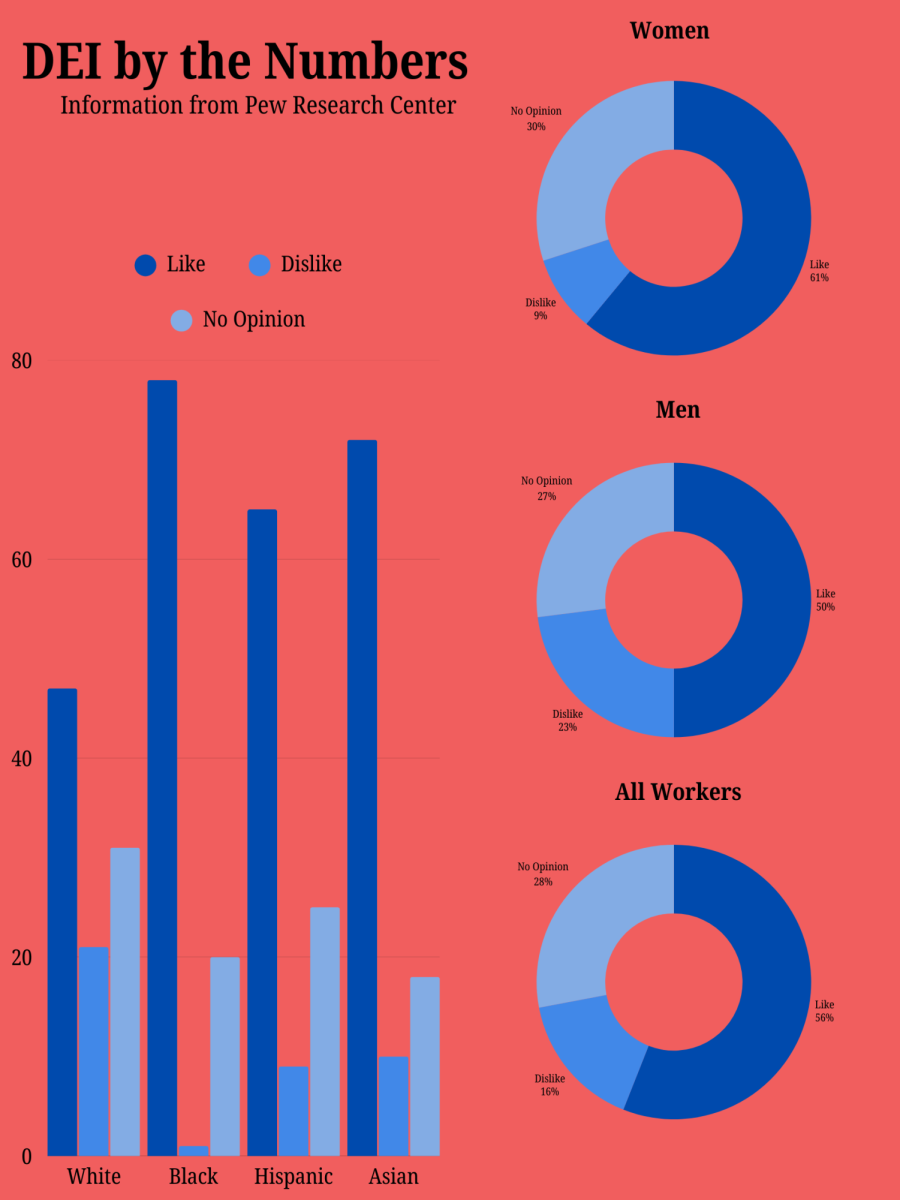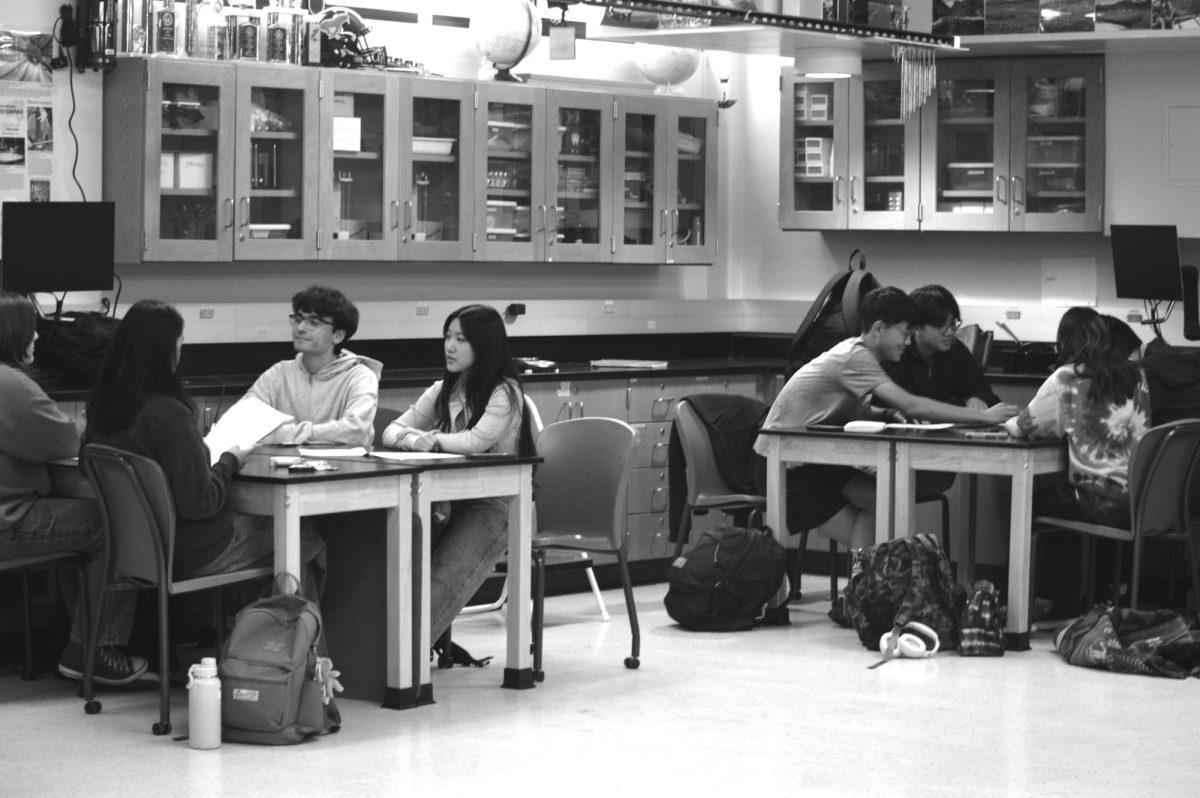Equality and personal liberty are two of the many foundational principles of which the United States were created on. However, it was not until 1865 that slavery was made illegal under federal law, and a century later when Black Americans were given equal rights under the law. Women were not legally able to vote until 1920, and unable to own houses, credit cards, and more until the 1970s. People with disabilities were discriminated against legally in the workplace until the Americans with Disabilities act was passed in 1990.
“What even is DEI?” a student at Parkway Central said. According to CNN, DEI, or Diversity Equity and Inclusion programs were created in hope that more or all people would thrive in society, including workplace environments and school.
Recently, the Trump administration has brought DEI programs under attack across the country, causing several major corporations and schools, such as Amazon and University of Michigan, to cut these programs. Discussion ensued on how these changes will impact students at Parkway Central High School, in both positive and negative ways.
Dr. Cartelia Lucas is a longtime Parkway employee, previously working as a teacher, assistant principal, and principal at various Parkway schools. Currently she works as the director of Diversity, Equity, and Inclusion at the district.
“Our diversity, equity, and inclusion department strives to ensure that each student and staff member can access the resources needed to reach their full potential,” Dr. Lucas said.
The Parkway website states five policies implemented at the district level to promote equity: relationship and community building, curriculum, professional development, recruit, hire, retain, and develop / promote, and accountability.
For example, the Educational Equity Policy asks the district to take a closer look at the curriculum to “determine the degree of equity contained therein and make appropriate revisions to make equity for all students apparent” according to Dr, Lucas.
Certain members of the Republican Party have criticized such policies for promoting an agenda such as curriculum that teaches CRT (critical race theory), sexual orientation, and gender. Most recently, Florida passed legislation in 2023 effectively banning AP Psychology from public schools. College Board cites the issue as “teaching foundational content on sexual orientation and gender identity”, which is currently illegal under “Don’t Say Gay” legislation. They cite DEI as the cause for this curriculum.
“Diversity, equity, and inclusion initiatives give students a sense of belonging and community, especially for those who may have previously felt isolated,” Dr. Lucas said.
Besides the classroom curriculum, DEI also allows female athletes to participate in sports, per Title IX. In 1972, Title IX was passed, prohibiting discrimination based on sex in federally funded programs and activities. The amendment created female high school sports, which allowed many women to pursue athletics at higher levels, whereas it used to be a male only avenue. Title IX promotes inclusion, which is the practice of providing equal access to opportunities to people who may otherwise be excluded, according to the Oxford Dictionary.
Certain experts fear that if DEI was banned it would impact students who use education plans under the IDEA Act (Individuals with Disabilities Education Act).
“Students who receive support through individual education plans (IEPs) or 504 plans, for example, would be impacted if diversity, equity, and inclusion practices were eliminated,” Dr. Lucas said.
According to the National Center for Education Statistics, in 2023, 7.5 million students used education plans, with the highest percentage having a specific learning disability (32%). Plans commonly allow tools for testing, learning, and classroom settings, including extra time on tests or an aid in the classroom. Besides learning disabilities, plans also benefit students with medical issues, such as allowing students with diabetes access to a special testing room in case their glucose spikes or dips.
Others argue that DEI provides an unfair advantage in society. In terms of education, the most common critique is that marginalized students have an advantage over non marginalized students in college admissions.
“[A] straight A student who happened to be white and male, wanted to get into this really good college, but instead the college chose a person of color who generally had less impressive academic achievements,” another Parkway Central student said.
College admission officers say that taking factors such as race and gender into account when admitting applicants is an effort to undo the systemic racism and inequalities that were present at colleges for decades. However, many individuals believe that admitting people based on such factors is unfair to other groups of people, as well as the individuals themselves. These create a cloud of uncertainty around the legitimacy behind marginalized groups getting admitted into college, potentially causing even more racism and sexism.
Some analyze the situation as racism against white individuals, specifically white men who have largely lacked discrimination throughout United States history. “It’s possible to be racist towards people of lighter skin, I know it may come as a shocker,” the student said.
While DEI comes under attack at both the federal level and in communities, experts assert that legally the Trump Administration cannot ban DEI efforts. “We understand that this can only occur as authorized by law,” Dr. Lucas said.
Most people can agree, however, that diversity is a positive aspect in American society. Diversity provides new perspectives from different walks of life, stopping phenomena such as group think, and increasing empathy in society. Regardless of support of DEI programs, “diversity is a strength, not a weakness,” another Parkway Central student said.








